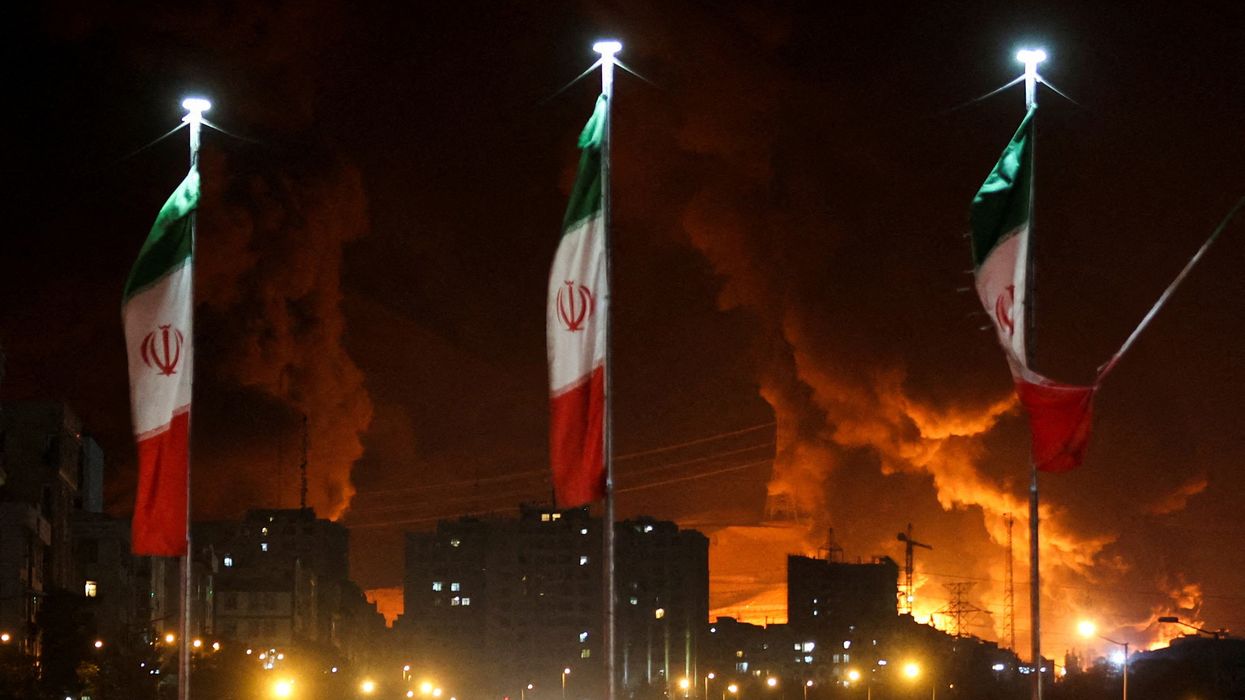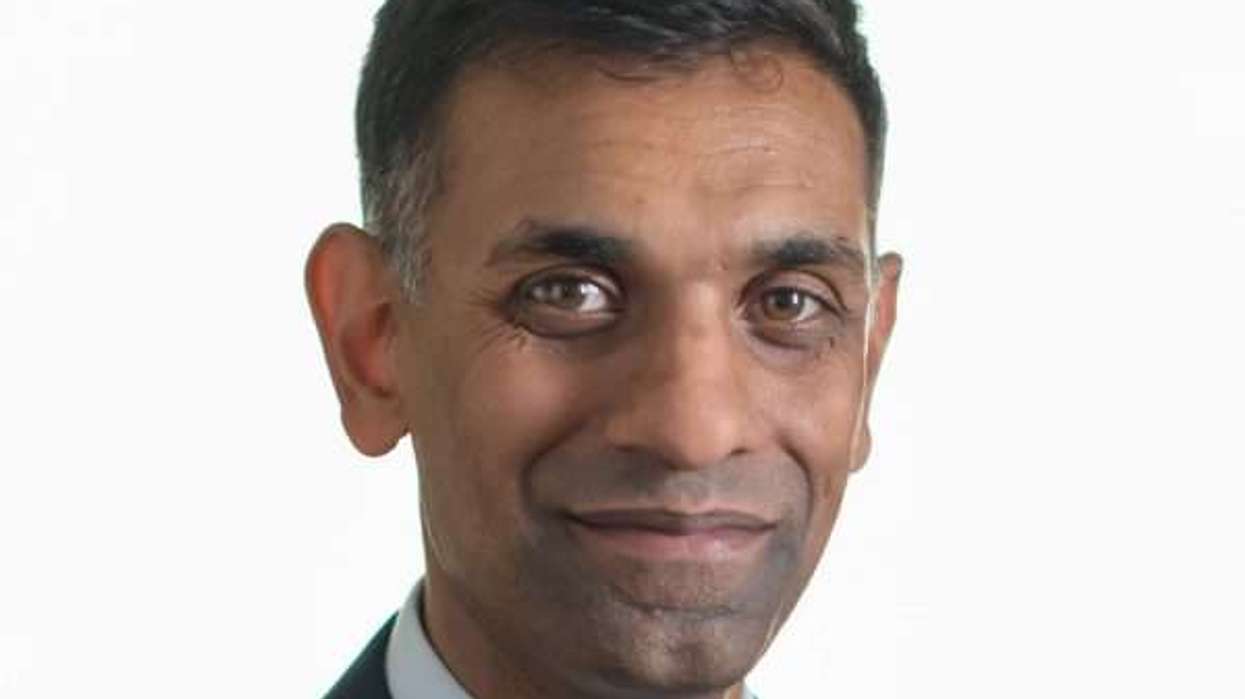INDIA on Tuesday advised its citizens to leave Tehran as the conflict between Israel and Iran continued to intensify. Some Indian nationals have already left the country through its borders.
The Indian Ministry of External Affairs said Indian students have already exited the Iranian capital, while other residents who could manage transport on their own have been advised to leave due to the deteriorating situation.
"Residents who are self sufficient in terms of transport have also been advised to move out of the city in view of the developing situation," the foreign ministry said in a statement.
According to the ministry, "some Indians have been facilitated to leave Iran through the border with Armenia", located hundreds of kilometres northwest of Tehran.
The total number of affected Indian nationals has not been disclosed. As per government data from last year, around 10,000 Indians were in Iran.
India has also issued an advisory for its citizens in Israel, urging them to stay vigilant.
The advisory followed a call by US president Donald Trump, an ally of Israel, for "everyone" to "immediately" leave Tehran. The city has a population of nearly 10 million.
Fifth day of strikes between Israel and Iran
The hostilities between Israel and Iran continued on Tuesday, marking the fifth consecutive day of strikes in what has become their most intense confrontation yet. The two countries have long been engaged in covert operations and proxy conflicts, but the current fighting has raised fears of a wider conflict across the Middle East.
Israel said it launched "extensive" strikes on missile and drone sites in western Iran on Tuesday. Explosions and smoke were reported in the city of Tabriz, which hosts a major air force base.
AFP journalists reported loud explosions over Jerusalem and Tel Aviv. According to police, shrapnel from incoming fire caused damage in both cities but there were no casualties. The fire service in Tel Aviv responded to a blaze in the commercial hub.
Israel’s attacks have so far killed at least 224 people and injured more than 1,200 in Iran, according to Iran’s health ministry on Sunday. No updated figures have been released since then.
In response, Iran’s attacks on Israel have killed 24 people and wounded 592, according to the office of Israeli prime minister Benjamin Netanyahu.
Israel also claimed to have killed several top Iranian military commanders and nuclear scientists, and destroyed about one third of Iran’s surface-to-surface missile launchers.
"We have now achieved full air superiority over Tehran," said Israeli military spokesperson Effie Defrin.
Israel outlines campaign goals
Israeli prime minister Benjamin Netanyahu said Israel’s military campaign aimed to bring about "radical changes" in Iran and was "changing the face of the Middle East".
He listed three primary objectives: the elimination of Iran’s nuclear programme, the destruction of its ballistic missile production capability, and the dismantling of what he called the "axis of terrorism", referring to Iranian-backed groups in the region.
"We will do what is necessary to achieve these goals, and we are well coordinated with the United States," Netanyahu said. He did not rule out targeting Iranian supreme leader Ayatollah Ali Khamenei.
Evacuations and international responses
As fighting escalated, Trump posted on social media, "Everyone should immediately evacuate Tehran!" but did not provide further details. India and China also issued warnings to their citizens. China asked its nationals to leave Israel "as soon as possible", while Thailand announced preparations to evacuate its citizens from both Iran and Israel.
Earlier, Israel had issued an evacuation order for northern District 3 of Tehran, where the headquarters of state broadcaster IRIB is located. The building was later struck by Israeli fire. AFP journalists in Tehran reported hearing loud explosions throughout the city. The broadcaster said three people were killed in the attack.
Iran described the strike as a "war crime". In retaliation, it issued evacuation warnings for Israeli news channels.
Residential areas in both countries have been affected by the ongoing airstrikes. Iran said its targets in Israel included “sensitive and important” security locations as well as residences of military commanders and scientists.
A military official from Iran said on Tuesday that overnight drone attacks had destroyed “strategic positions” in Tel Aviv and Haifa.
Calls for diplomacy
World leaders have continued to urge both sides to de-escalate the conflict.
China called on Iran and Israel to “immediately” reduce tensions and “prevent the region from falling into greater turmoil”. Turkish president Recep Tayyip Erdogan told Iranian president Ebrahim Raisi that Ankara was ready to play a "facilitating role" in ending the fighting.
Prime minister Keir Starmer said there was "a consensus for de-escalation" among G7 leaders, who are meeting in Canada. French president Emmanuel Macron urged both countries to end strikes on civilians and warned against efforts to overthrow Iran’s government, calling it a "strategic error".
Trump told reporters at the G7 that “Iran is not winning this war, and they should talk... before it's too late.” Later, he said he would leave the G7 early to work on something “much bigger” than a ceasefire.
Nuclear talks between the US and Iran had been scheduled for Sunday but were cancelled after Israel began its attacks.
The G7, in a joint statement, called for de-escalation in the region, starting with the Israel-Iran conflict.
Iran’s nuclear sites under scrutiny
Israel’s military campaign is partly aimed at countering what it sees as existential threats from Iran’s nuclear and missile programmes.
The UN nuclear watchdog, the International Atomic Energy Agency (IAEA), has been monitoring developments. Its head, Rafael Grossi, said on Monday there was “no indication of a physical attack” on the underground part of the Natanz uranium enrichment site. He added that radiation levels outside the facility remained “at normal levels”.
The IAEA had earlier confirmed that a key above-ground section of the Natanz site had been destroyed.
(With inputs from agencies)





